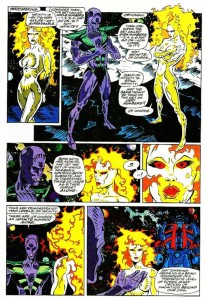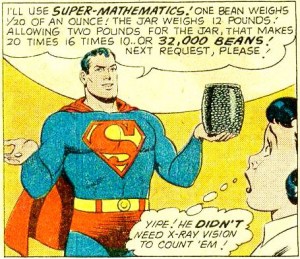This was first published on CiCo3.
___________
The following post examines gendered violence and sex work in the context of a recent Law & Order: Special Victims Unit episode. I make use of narratives by two adult film performers, Belle Knox and Kayden Kross, who recently published articles that overlap with the SVU episode, one directly engaging the episode. For broader context I cite Incite!: Women, Gender Non-Conforming, and Trans People of Color Against Violence and the Sex Workers Project and, while not quoted directly, analysis developed by Emi Koyama. Knox and Kross’s lived experiences provide fuller context and analysis than I cite below and Incite! and Emi Koyama’s work are central to the struggle against gendered violence against marginalized and criminalized populations and systemic violence more broadly. I strongly recommend reading their narratives and supporting their work and prioritizing it over what follows should you have to choose between them. Thanks to Megan Spencer for insightful feedback and to you for reading.
Like many Law & Order: Special Victims Unit episodes, the theme of the 22 October episode “Pornstar’s Requiem” is rape culture and the entitlement men assume over women’s bodies. This assumption is especially acute against women of color, colonized women, trans women and other communities marginalized by racism, patriarchy, capitalism and other oppressive organizations of power. Though SVU often centers middle class and wealthy white women, “Pornstar’s Reqiuem” centers one such marginalized community, sex workers. While all sex workers are marginalized or dehumanized in one way or another, an individual or group’s status as indigenous, working class, black, transgender or any other Other (including intersections of any or all of the above and more) means not all sex workers have the same experience. That should be read throughout what follows. (For this review I ignore the production value and storytelling quality, saving that for a later engagement. In brief, this episode suffers from the caricatured posturing and hero-villain hyper-polarization prevalent in the last few seasons of SVU though it is not as bad as some.)
“Pornstar’s Requiem” is one of the series’ ‘ripped from the headlines’ productions. It takes an element from popular media discourse and fictionalizes it to fit the half-police procedural/half-courtroom drama that is Law & Order ’s trademark. The episode takes inspiration from the case of Belle Knox, a porn star and Duke University student whose real name was exposed without her consent by a male fellow student leading to extensive harassment on and off campus.
In the SVU version, Hannah Marks plays Evie Barnes, a white, working class student at Hudson University (a frequent Law & Order stand in for NYU) and adult film performer under the name Roxxxane Demay. Two fellow Hudson University students watching porn on-line recognize Barnes and arrange to get her alone in a bathroom at a college party where they, invoking the rough sex of the porn clip they previously saw, proceed to rape her.
As is usually the case, SVU gets some stuff right while embedding the broader story in problematic politics. At its best numerous characters, especially Barnes herself along with Sgt. Olivia Benson (Mariska Hartigay) and Det. Amanda Collins (Kelli Giddish), over and again strongly reject repeated interjections from men trying to justify or rationalize the rape of Barnes due to her work in adult film. In one instance Barnes, her parents just having turned their backs on her because of her work, says, “I did nothing wrong and people need to hear that.” Barnes repeatedly invokes the principle of consent with no qualifications as to the job or social position of the person granting or withholding consent and how any violations of that are sexual assault.

Evie Barnes defends her right to withhold consent and perform in porn saying, “I did nothing wrong and people need to hear that.
In her write-up of the episode, Belle Knox identifies closely with Barnes.
I know well the chilling rape culture entitlement that comes along with men discovering that I’m a porn star. This is the scenario that plays out on the episode. One of the frat boys accused in “Pornstar’s Requiem” even goes so far as to say to the police the following jaw-dropping line: “I didn’t think you could rape a girl like that.”
Have I heard this before?
Not in those exact words, but in actions and in snide remarks, in the assumptions people make with my body and my livelihood because they have watched me in porn or heard that this is my profession. One time a hotel provided a key card to a friend of another man I knew, and at 2 in the morning, this large and loud, older and incredibly drunk stranger wandered into my hotel room — with his own key. I was terrified. Did he think that because I was a porn star he could just come in? Did he think he could do something with me?
She continues, “There is this sense of ownership of porn stars from strangers, which is, quite frankly, chilling.” In a recent article for Salon, fellow porn star Kayden Kross describes her own nonconsensual outing as a college student and how, due to sex workers’ societal position, people outside the industry can’t even imagine how it is that she hasn’t been raped.
I have not been molested by an uncle. Not by a single one of them, if you can believe it. Yet strangers every day tag me with this scarlet letter because they can imagine no other circumstance under which I might choose the life I have chosen. Not only is this an insult to me, but it is an insult to all women who have made unconventional personal choices, because the go-to assumption is that a woman who doesn’t fit the mold has very likely been sexually damaged by a man. It is a comfortable way to explain away a disobedient woman.
There are few keener descriptions of rape culture then how Kross describes the public as demanding her past rape in order to comprehend her. Rape is necessary for their engagement of Kross’s narrative, part of the “sense of ownership of porn stars” that Knox writes about. Kross describes the expected consequences in case of actual assault.
I sometimes wonder how deeply the assumption that the adult performer is somehow a lesser person really runs. Will our aggressor be given a lighter sentence in the event of a murder trial? Will the case be taken less seriously in the event that one of us disappears?
This is the result portrayed in “Pornstar’s Requiem”. After achieving the uncommon in real life result of a guilty verdict – according to the Rape, Abuse & Incest National Network, only nine out of every one-hundred sexual assaults are ever prosecuted in the first place – the judge sets aside the verdict and admonishes Barnes in the most condescending manner saying, “I hope going forward you find a way to respect your body and yourself.” Knox writes that the judge’s phrasing is “something I have heard so many times from my friends, family and peers it practically feels like my first name.”
The Patriarchal State and Accountability
SVU, like all cop shows, even more critical ones like The Wire, defines accountability as state intervention followed by incarceration. In the case of sex workers, people of color, colonized (including intersections thereof) and other Othered populations, interventions by institutions of state violence (the police, Immigration and Customs Enforcement, the military, F.B.I., etc.) frequently exacerbate rather than mitigate violence, including sexual violence.
The Sex Workers Project (SWP) at the New York City-based Urban Justice Center conducted a small survey of folks in the trade. Among their findings:
Thirty percent of sex workers interviewed told researchers that they had been threatened with violence by police officers, while 27% actually experienced violence at the hands of police. Reported incidents included officers physically grabbing and kicking prostitutes, as well as beating them; one incident of rape; one woman was stalked by a police officer; and throwing food at one subject. Sexual harassment included fondling of body parts; giving women cigarettes in exchange for sex; and police offering not to arrest a prostitute in exchange for sexual services.
Perhaps most obviously, that most sex work is criminalized means that agents of state violence generally seek to incarcerate sex workers, not offer any kind of protection or support. As Incite! Women, Gender Non-Conforming, and Trans People of Color Against Violence notes, “Existing laws that criminalize sex work often prevent workers from reporting violence, enable law enforcement agents to not take violence against sex workers seriously when it is reported, and facilitate police violence against sex workers.”
The vigorous defense offered by the (initially reluctant) District Attorney and police in “Pornstar’s Requiem” is anomalous in the real world though the lack of rapist accountability of any kind in the end, the paternalistic dismissal of Barnes by the judge, the exploitation of class differences between the rapists to turn the working class rapist snitch and the perpetual saving mission of the police all ring true.
Condemned to Porn
The end of “Pornstar’s Requiem” is filmed as tragedy. Kross writes about experiences outside of the porn industry bubble where porn stars are dehumanized and made punchlines. In a comedy class she is taking the instructor says, “Don’t worry, if you fail at this, there’s always porn.” It’s a common punchline. In their opening monologue for the 2013 Golden Globes, Tina Fey and Amy Poehler make a similar joke.
Tina Fey: I don’t think she has plans to do porn Amy.
Amy Poehler: None of us have plans do to porn.
Examples abound. Porn is not a career one chooses in such comments but a life one is condemned or resorts to.
The porn industry has no doubt been tragic for some of its workers. But so has the restaurant industry. So has accounting. So has professional American football. The “porn as last resort” narrative is another way of dehumanizing sex workers. Since, in patriarchy’s narrative, no one would choose it, those engaged in it must not be anybody nor any body. This is how “Pornstar’s Requiem” ends.

Evie Barnes broadcasts her social death.
After the judge sets aside the verdict and frees Barnes’s rapist, Barnes commits what the show portrays as a kind of suicide, complete with suicide note, where she leaves university for porn. “Pornstar’s Requiem” narrates this as the failure of the agents of state violence to complete a saving mission. Barnes no longer exists, they lost her. Only Roxxxane Demay remains. Demay partially affirms her position telling Collins, “At least here when I say stop, they stop.” But she does so on the verge of tears over a funereal soundtrack making that affirmation instead part of the “resort to porn” narrative. No matter that earlier in the episode Barnes expresses a certain fulfillment with her work in porn, “I signed contracts. I got paid. It felt good. I mean these guys [Barnes looks to each side at the men on campus] look right through me. They have no idea what I’m doing on set with hot porn actors.”

Evie Barnes self-medicates before her funeral.
Evie Barnes’s social death is finalized on a porn set. Collins tells her, “You don’t have to be here,” and tries to offer her other options. Demay tell Collins, “Once you’re Roxxxane Demay, you can’t be Evie Barnes again,” takes some kind of pill, disrobes and walks to her burial, a gangbang scene with fifteen men as stand-ins for pallbearers.1 This, as with all saving missions, ends with the ‘saved’ being dehumanized by the saviors. The dehumanization that Barnes fights against earlier in the episode is finalized with the heavy, tragic soundtrack, Barnes/Demay’s tears and Collin’s desperate, sorrowful pleading. She is literally dehumanized in this narrative. The human Evie Barnes is dead and Roxxxane Demay, a fictional character invented by Barnes for stage purposes, now exists in a non-life as the title “Pornstar’s Requiem” suggests. Here Collins and Barnes’s rapists are no longer opposing parties, they find shared ground with Barnes’s dehumanization.

Roxxxane Demay approaches her funeral.
The episode’s end message affirms both agents of patriarchal state violence as sole recourse of accountability (though failed in this instance) to victims of gendered violence and the dehumanization of sex workers. NBC broadcast this message to over two million initial viewers. As with all popular culture, the episode did not invent this message. Instead it (re)produces it in conversation with broader media and popular discourse. “Pornstar’s Requiem” is another exchange in the conversation and in spite of its attempt at critical engagement, it ends up projecting and producing the real-life alienation described by Kross and Knox.
________
1.The episode strongly suggests a social death and portrays Roxxxane Demay’s evolution as solely horror. There is another interpretation though the show does not point to it in any way at all, what Emi Koyama calls “Negative Survivorship“. Interpreting the scene this way is far better and appropriately positions the agents of state violence with the rapists while supporting Demay/Barnes. Based upon all previous episodes of SVU, this is not the intention of the writers.














